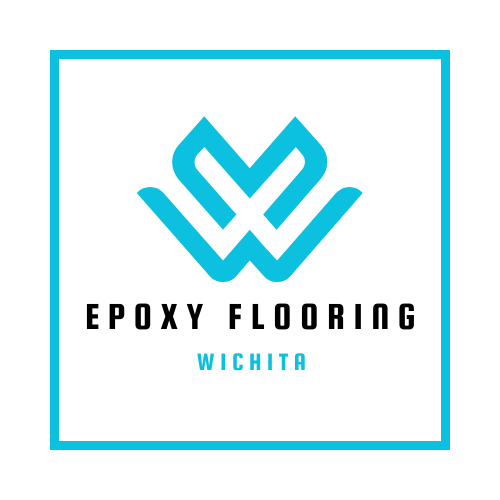Decorative and Flake Epoxy Flooring
(316) 330-2851
Decorative Epoxy Flooring
Benefits of Decorative and Flake Epoxy Floors
- Decorative and flake epoxy floors bring a space to life, transforming your floors from dull and plain to bright and exciting.
- Whether you are leaning towards flake epoxy flooring, gravel epoxy flooring, or single-tone epoxy flooring, it will protect the surface, increasing durability and lifespan.
- Decorative epoxy floors are easy to clean, requiring little maintenance due to the impermeability and smooth texture of epoxy coatings.
- Decorative epoxy floors often raise the value of your space, making it more appealing when the time eventually comes around to sell or lease.
What Surfaces Can Epoxy Floor Coatings Be Applied?
Epoxy floor coatings can be applied to virtually any surface. Some materials that epoxy will bond to are metals, concrete, and wood. Flake and gravel epoxy flooring are most popular in garages, malls, stores, offices, and warehouses, due to their tough appearance and durability. Other decorative epoxy coatings such as single-tone epoxy or metallic epoxy are more commonly used in homes, garages, and entertainment spaces where more of a stunning appearance is desired.
Where Are Flake and Gravel Epoxy Floors Most Commonly Found?
Flake epoxy floors or gravel epoxy floors are found all across residential, commercial, and industrial settings. Here are some specific examples of where you can typically find these types of epoxy floors:
- Residential Garages: Flake epoxy floors or gravel epoxy floors are popular choices for residential garage flooring. These floors not only provide a durable and long-lasting surface for parking vehicles but also enhance the overall aesthetic appeal of the garage. The decorative flakes or gravel add a touch of customization and can complement the homeowner's style and preferences.
- Showrooms and Retail Spaces: Flake epoxy floors are often found in showrooms and retail spaces. The decorative flakes can create a visually appealing and professional environment, enhancing the overall presentation of the showcased items.
- Industrial Facilities and Warehouses: Flake epoxy floors or gravel epoxy floors are frequently utilized in industrial facilities and warehouses. These floors provide a strong and resilient surface that can handle the weight and movement of heavy machinery, forklifts, and other equipment commonly found in these settings. The decorative flakes or gravel can also help to improve visibility and safety by creating defined walkways or designated areas.
- Healthcare Facilities: Flake epoxy floors or gravel epoxy floors are also found in healthcare facilities such as hospitals, clinics, and laboratories. These floors offer excellent chemical resistance, making them suitable for areas where spills of harsh chemicals or medical substances may occur. The decorative flakes or gravel can be used to create a clean and sterile environment while also providing slip resistance in areas where safety is a priority.
Epoxy Flooring vs Concrete Polishing
You may have heard of both epoxy flooring and polished concrete and wondered, what is the difference? We know it gets confusing. That's why our experienced team put together a brief explanation of the differences, just for you.
- Epoxy flooring involves several overlays of an epoxy resin that acts as a durable coat for the floor. Polished concrete involves modifications to the concrete itself to produce a similar smooth and protected surface.
- Epoxy flooring offers increased protection due to adding a thick coating between the surface and the original floor.
- Epoxy flooring offers a larger opportunity for customization, as flakes, gravel, and metal pigments can be added during the epoxy resin application to create stunning designs. Polished concrete only shines and polishes the existing surface.
- Epoxy flooring often comes with high performance non-slip top coats, eliminating slip hazards when wet. Polished concrete does not typically come with this option, or requires expensive additions.
- Epoxy flooring offers more flexibility by being able to be applied to a variety of different surfaces including concrete, wood, metals, and tile. Polished concrete is only applicable to concrete surfaces.
How Much Does Adding Flakes or Gravel To Epoxy Floors Cost?
Adding flakes or gravel bits to epoxy coatings can often make a boring floor more attractive and can even increase durability. Flakes and gravel bits typically add around 10-15 cents per square foot to the cost of installing plain or single-color epoxy. Without flakes and gravel, epoxy floors cost around $3 to $12 per square foot (labor-included) on average.
Contact Us - Epoxy Flooring Wichita
Services Page Form
Thank you for contacting us. We will get back to you as soon as possible.
Please try again later
Location
Call
All Rights Reserved | Epoxy Flooring Wichita KS | Powered by Snapps
